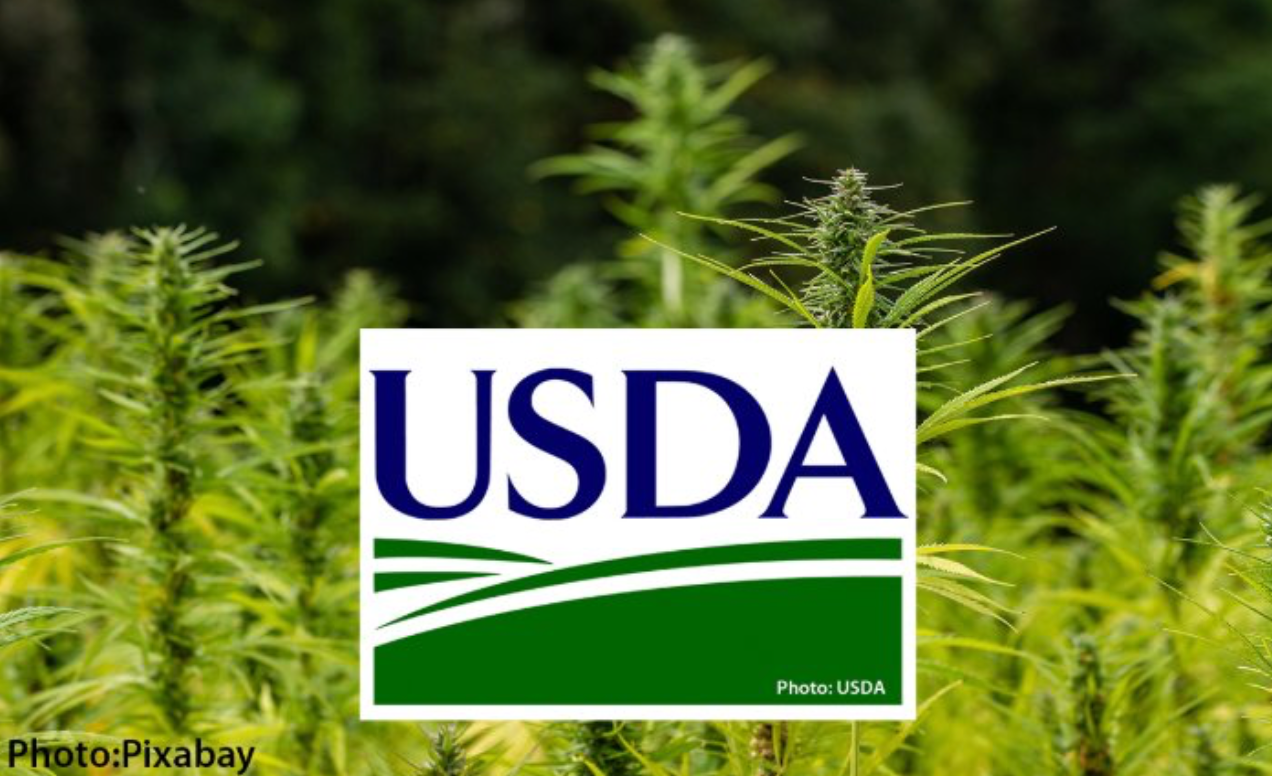New DEA Interim Final Rules a Trojan Horse to Disrupt the Hemp Industry?
This article originally appeared on LetsTalkHemp.com.
By Steven Hoffman
The U.S. Drug Enforcement Administration (DEA) published on August 21 interim final rules (IFR) on hemp that it says puts the agency in compliance with the 2018 Farm Bill’s legalization of industrial hemp. The new rules seem friendly enough, but hemp and CBD industry watchdogs point to a potential trojan horse that could present a significant threat to the hemp industry.
Introducing the rules, DEA’s language seems benign enough, stating, “The interim final rule merely confirms DEA’s regulations to the statutory amendments to the CSA (Controlled Substances Act) that have already taken effect, and it does not add additional requirements to the regulations.”
Among its four main amendments is language stating that “tetrahydrocannabinol” (THC) does not include “any material, compound, mixture, or preparation the falls within the definition of Hemp.” In addition, it removes any CBD drug product approved by FDA from Schedule V status; and the IFR removes import and export controls over hemp and its derivatives. Lastly, the rules modify the definition of “marihuana extract” to exclude substances that contain less than 0.3% delta-9 THC on a dry-weight basis. The rules add no additional costs resulting from these changes, said DEA.
However, attorney and writer Rob Kight of Kight on Cannabis warned that the rule “could potentially be a fatal blow to the entire hemp/CBD industry, namely, the IFR’s criminalization of ‘work in progress’ hemp extract, a fundamental component of any consumer hemp/CBD product,” he said in a recent report. The catch, he explained, is that DEA wants to measure on a dry weight basis, but hemp extract is an oil – it’s “wet.”
Kight refers to “work in progress hemp extract” as an extract of hemp in a partially processed state that is not intended for consumer use or consumption. “With respect to the Farm Bill’s language, it clearly contemplates that hemp extracts will be created, and that they will be lawful,” he stated in his report. “Otherwise, the term ‘extract’ would not have been included in the definition of hemp,” Kight said.
“Under almost any normal extraction and manufacturing process it is impossible to avoid a stage in which the extract is both ‘wet’ and within the 0.3% THC limitation,” Kight continued. “For example, take the most basic processing method of trimming and separating a hemp plant’s stalks, stems, and seeds from its leaves and flowers. Processing the plant in this way, which occurs on some level for most hemp cultivated in the U.S., increases the concentrations of THC despite not increasing the actual amount of THC.” However, Kight asserted, when final consumer product reaches the market, it is well within the 0.3% limit.
“For these reasons, it is reasonable to assume that Congress intended for extracts to be produced and that such production will necessarily result in a stage during the processing phase when the extract contains THC concentrations in excess of 0.3%. In other words, it is reasonable to conclude that Congress contemplated the existence of work in progress hemp extract, Kight concluded.
DEA’s removal of FDA-approved CBD pharmaceuticals from its schedule is consistent with an action the agency took in April 2020 when it removed GW Pharma’s CBD epilepsy drug Epidiolex from Schedule V of the Controlled Substances Act, reported Marijuana Moment.
As the agency finalizes its enforcement rules for hemp and CBD, DEA has not necessarily been a cooperative partner with the USDA, according to Secretary of Agriculture Sonny Perdue. Marijuana Moment reported in March 2020 that Perdue placed partial blame on DEA for restrictive policies included in its hemp rules that were making it challenging for producers. Perdue said DEA was having an outsized influence on its proposed hemp rules and that DEA “really didn’t like the whole program to begin with,” referring to hemp reform, reported Marijuana Moment.
“The DEA always wants to control the narrative surrounding industrial hemp despite Congress’s clear intent to keep the DEA out of it; that is precisely why the 2018 Farm Bill was written the way that it was written – to remove any strings that the DEA may try to assert re: hemp. They did this in 2016 with the Marijuana Extract drug code, and they are doing it again with this IFR. It is a never-ending battle not between the DEA and the hemp industry, but between Congress and the DEA. Which is a damn shame,” said leading hemp and cannabis attorney Bob Hoban, founder of The Hoban Law Group in Denver, CO.
“We are just starting to dig into the DEA’s new IFR language,” said Jonathan Miller, attorney with Frost Todd Brown in Lexington, KY, and director of the firm’s hemp practice, and general counsel for the U.S. Hemp Roundtable, “There is a concern, if it is read broadly enough, that the DEA would think they’re in the business of policing CBD and other hemp extractors. The 2018 Farm Bill made it clear that is not the case.”
Read DEA’s Interim Final Rules here.
Public comments will be accepted on the proposed amendments until Oct. 20, 2020.
Legal Experts Weigh In on USDA Interim Final Hemp Rule
Originally Appeared in Let’s Talk Hemp Newsletter, November 2019
By Steven Hoffman
As USDA seeks comments by December 30 for its new Interim Hemp Rule that lays out regulations to establish a U.S. Domestic Hemp Production Program, a major concern is the rule’s timeline for farmers getting their plants tested to make sure they don’t exceed the maximum allowed level of THC.
The challenge is the rule requires that the plants be tested within 15 days before harvest begins. The USDA says if farmers delay harvest beyond 15 days, the plants will likely have a higher THC level than the sample. If the level exceeds 0.3%, the plants will have to be disposed of under Drug Enforcement Administration regulations because the hemp would be considered a controlled substance. But the 15 days aren’t much time to submit the plants and get the results needed to know whether it’s OK to harvest the crop, Michael Bowman, a co-founder of First Crop, a public benefit company working with hemp farmers, told the Denver Post. “I would call it unworkable at this point,” Bowman said of the provision.
Meghana Shah, a co-leader at the New York City office of Eversheds Sutherland law firm, told the Denver Post, “It doesn’t address the fact that all of the sampling and testing is essentially happening around the same time for all of the producers. There’s uncertainty as to when the results will come back and how that affects a producer’s decision to actually harvest. There are a lot of sort of logistical and practical hurdles posed by the 15-day window with not a lot of answers. That is one of the areas where USDA sought comment, so I think we can expect to see it addressed during the comment period,” Shah added.
According to USDA, the draft hemp rule outlines provisions for USDA to approve plans submitted by states and Indian Tribes for the domestic production of hemp. It also establishes a federal plan for producers in states or territories of Indian Tribes that do not have their own USDA-approved plan. The program includes provisions for maintaining information on the land where hemp is produced, testing the levels of delta-9 tetrahydrocannabinol, disposing of plants not meeting necessary requirements, licensing requirements, and ensuring compliance with the requirements of the new part. The rule will become effective when it is published in the Federal Register. Comments received by December 30, 2019, will be considered prior to issuance of a final rule.
To help producers and businesses make sense of USDA’s draft Hemp Rule, a number of law firms and legal experts specializing in industrial hemp have published opinions, analyses and client alerts about the impact and key takeaways of the draft rule. Read more here for a sampler of recent legal analyses covering USDA’s new interim hemp rules.
To date, USDA has received over 800 comments on the draft rule to establish a domestic hemp program. Read the USDA Interim Final Rule here. To submit a comment, visit here. Comments received by Dec. 30, 2019 will be considered prior to issuance of a final rule.
Learn more about the state of the industrial hemp market at the upcoming Winter Hemp Summit, Jan. 16, 2020, in Boulder, CO, and the 7th Annual NoCo Hemp Expo in Denver, March 26-28, 2020.


